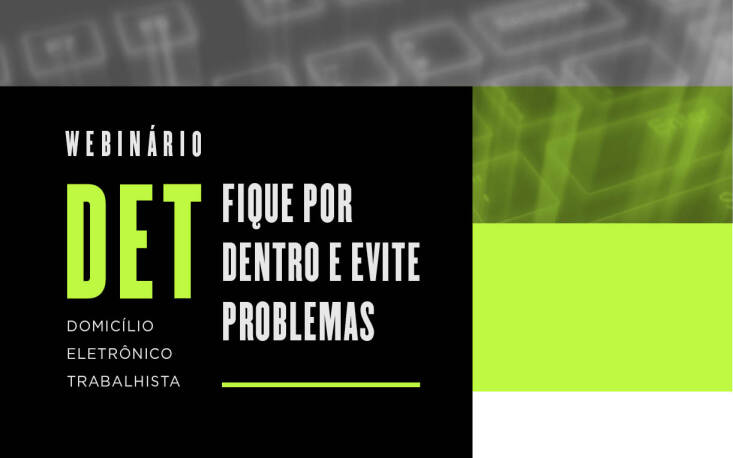From May onwards, adherence to the Labor Electronic Domicile is mandatory for all companies, from Simples Nacional to MEI. See the important tips that FecomercioSP prepared for you (Art: TUTU)
Employers now have a platform that centralizes digital communication with labor inspection, modernizing management and compliance with labor tax obligations: the Labor Electronic Domicile (DET).
Despite being an advance in reducing bureaucracy, membership becomes mandatory for groups 3 and 4 of eSocial and for domestic employers as of May 1, 2024. This applies to those opting for Simples Nacional and Individual Microentrepreneurs (MEIs), whether or not they have employees. Groups 1 and 2 of eSocial have already been obliged since March.
In general, DET facilitates communication between Labor tax auditors and companies in several ways. First, the system notifies the employer of any administrative acts, tax procedures, subpoenas and general notices that it may receive. It also allows the company to send the electronic documentation required during labor inspections or when presenting defenses and appeals within the scope of administrative proceedings. Upon its use, the company will be exempt from publishing communications on the Official Diary of the Union (DOU) and postal delivery. Another feature of the platform is the adoption of the Electronic Work Inspection Book (eLIT) replacing the printed version.
Dedicated webinar
Due to the proximity of the date, the Federation of Commerce of Goods, Services and Tourism of the State of São Paulo (FecomercioSP) held a webinar to clarify the main changes coming with the DET.
The task of companies, from now on, is to always check notifications from the system’s mailbox so that they do not go unnoticed, as this is the definitive communication channel. “It is also important to pay attention to the risks of non-adherence, which involves fines and penalties for the company. Or, even, the company does not consult the communications. It may happen, for example, that the employer does not check the mailbox, but the inspection will consider him aware of the notification delivered by email a few days after it was sent, and this could also generate penalties”, emphasized Paula Tateishi, advisor at FecomercioSP. The electronic platform does not require installation. All you need is a web browser with internet access, in addition to authentication. gov.br account login.
Notifications process
Roberto Wakahara, Labor tax auditor, indicated that, during the inspection process, the company will receive communication through the DET and send the documentation through the same channel. In the coming months, the process surrounding the communication of the administrative process will also take place through the system.
“Right now, everyone is already registered. What you should do now is update your registration, including an email and a proxy, if applicable. This email will be used to inform the person that there is a notification at DET. Formal notification only occurs through the platform”, added Wakahara.
Considering that all employees and employers are already automatically registered, regardless of access (or not) to the system, the notification will arrive there. This requires the company to make an effort to have someone take care of the mailbox, be it the employer itself, the accountant, the lawyer, or the Occupational Health and Safety (OSH) department, considered Manu de Paula, accountant at Canal Accounting with Soul. “It will also be possible to request longer deadlines for sending documentation, a request that will be analyzed. The idea is that this will make everything electronic, all the inspections that took place will be centralized there, everything that was analyzed, what worked and what didn’t”, he clarified.
Eduardo Pastore, advisor at FecomercioSP, highlighted that the DET will consolidate the concept of legal security, indicating to companies that inspection will be much more agile, objective and effective in demanding compliance with labor standards. “Security will become increasingly more pressing through this platform. Ultimately, this will establish fairer competition for companies in the labor market, as those that comply with the rules will no longer be punished by those that do not,” he concluded.
Support channels
FecomercioSP also prepared a complete e-book to detail the functions, benefits and legal security and adherence to the DET. Access it here and count on all the support you need to join the platform in your company.
Check out the webinar!
